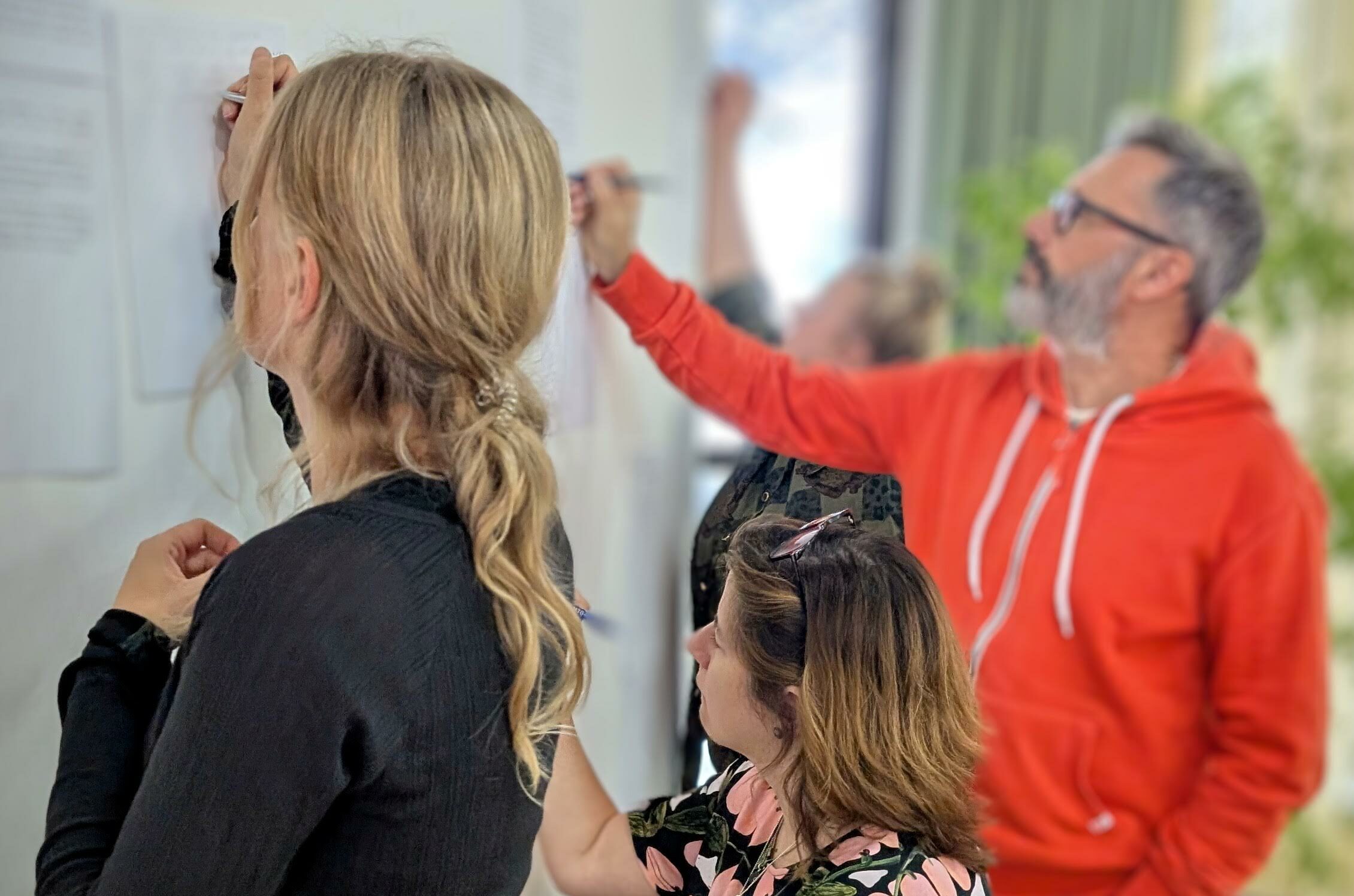Turning Research into Practice: GreenComp Project Meeting in Vis, Croatia
Four days of collaborative work to transform a year of research into educational materials for green competence development
The Sustain-Ability project team met in Vis, Croatia for a four-day transnational meeting from September 30th to October 4th 2025. The goal was straightforward: review the research findings from the past year and start building the educational materials that will make up the next phase of work.
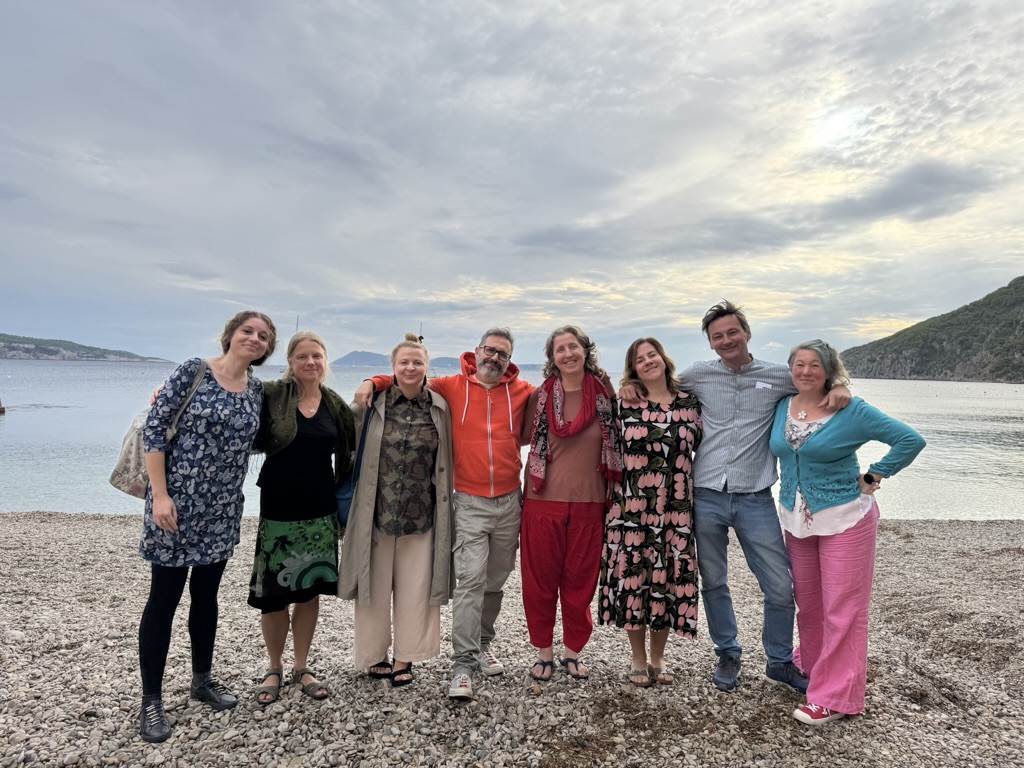
Day 1: Looking Back at a Year of Research
The research team spent the first day together reviewing their work. Over the past year, they interviewed more than 100 people across different countries to understand how the GreenComp framework is perceived and what kind of educational materials are actually needed.
With the final research report already complete, the team used this time to reflect on what they’d learned and prepare to share their findings with the educators joining them the next day.
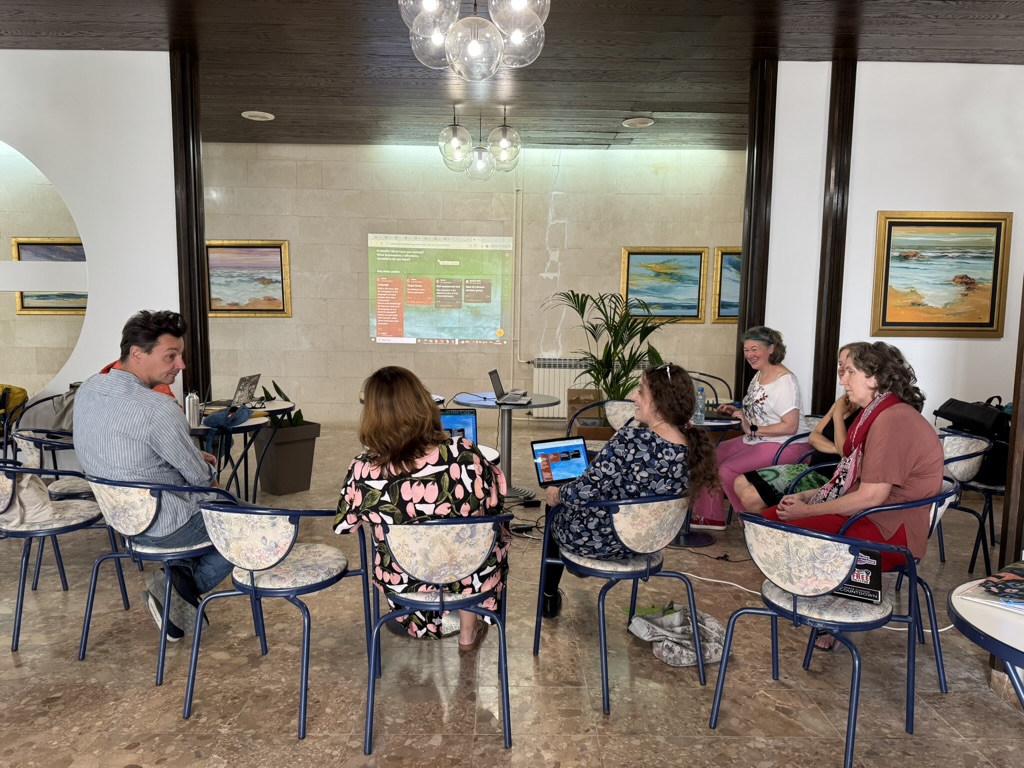
Day 2: Researchers and Educators Come Together
The second day brought the full team together. The researchers presented their findings in an interactive format, sharing 31 recommendations organized into seven thematic areas. Rather than sitting through presentations, educators worked in pairs and groups to discuss the recommendations and think through what they meant for teaching practice.
In the afternoon, the conversation shifted to practical matters. What strengths and resources does the educator team bring? How do these connect to the research recommendations? The team also revisited the original project goals and talked more specifically about who would use these materials and why creating them matters to each team member.
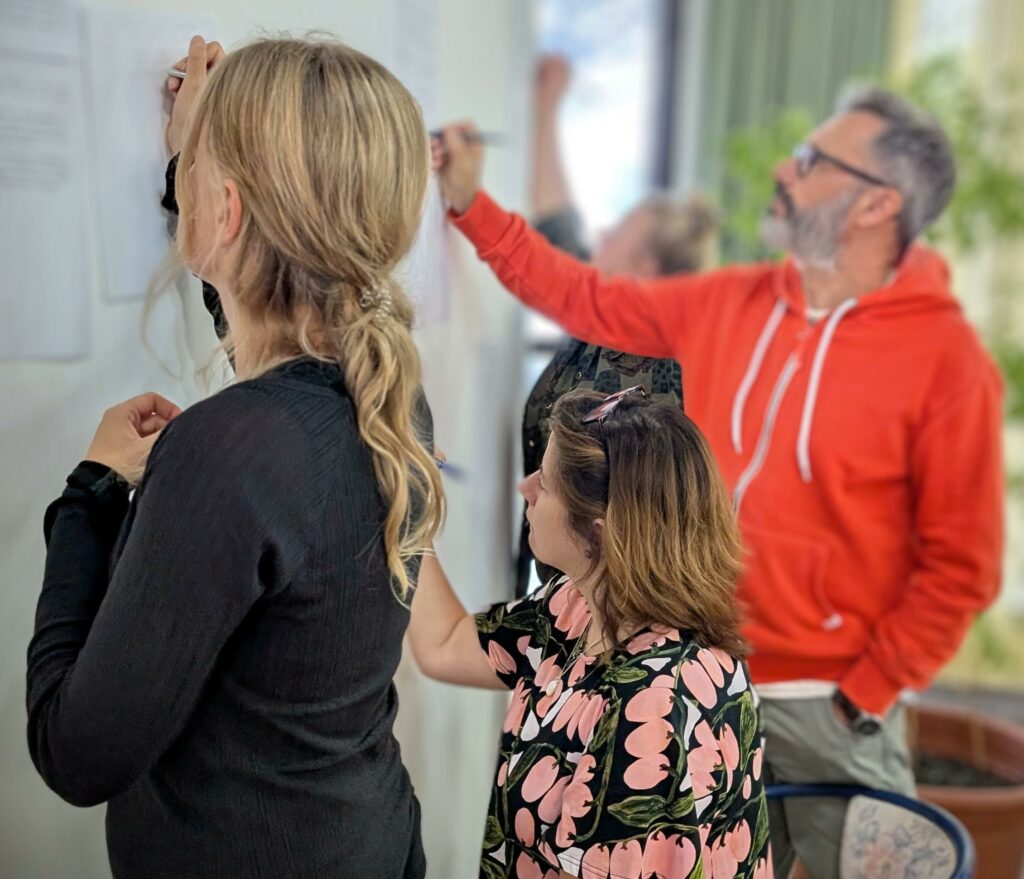
Day 3: Shaping the Educational Materials
On the third day, the educators met on their own to start designing the actual materials. They discussed different possible formats—modules, curriculum, learning journeys, or other structures—and worked out what elements were essential to include.
The team talked through important questions about balance: How much should be group work versus individual activities? What should be online and what works better offline? These decisions would shape how the materials actually function in real settings.
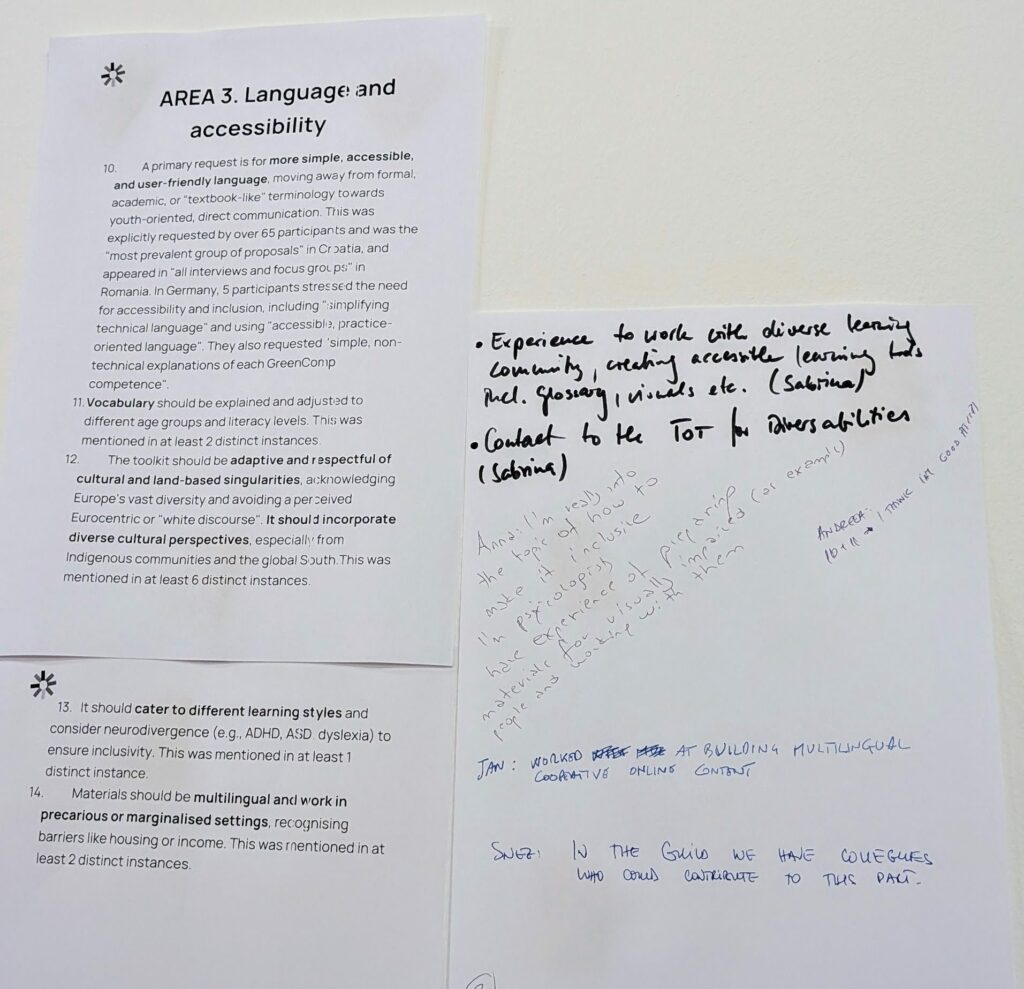
Day 4: Planning the Work Ahead
The final day focused on getting organized. The team decided how they’d communicate and collaborate going forward, created a timeline, and divided up responsibilities. They also identified which competencies to tackle first as pilot modules, giving them concrete starting points for the work ahead.
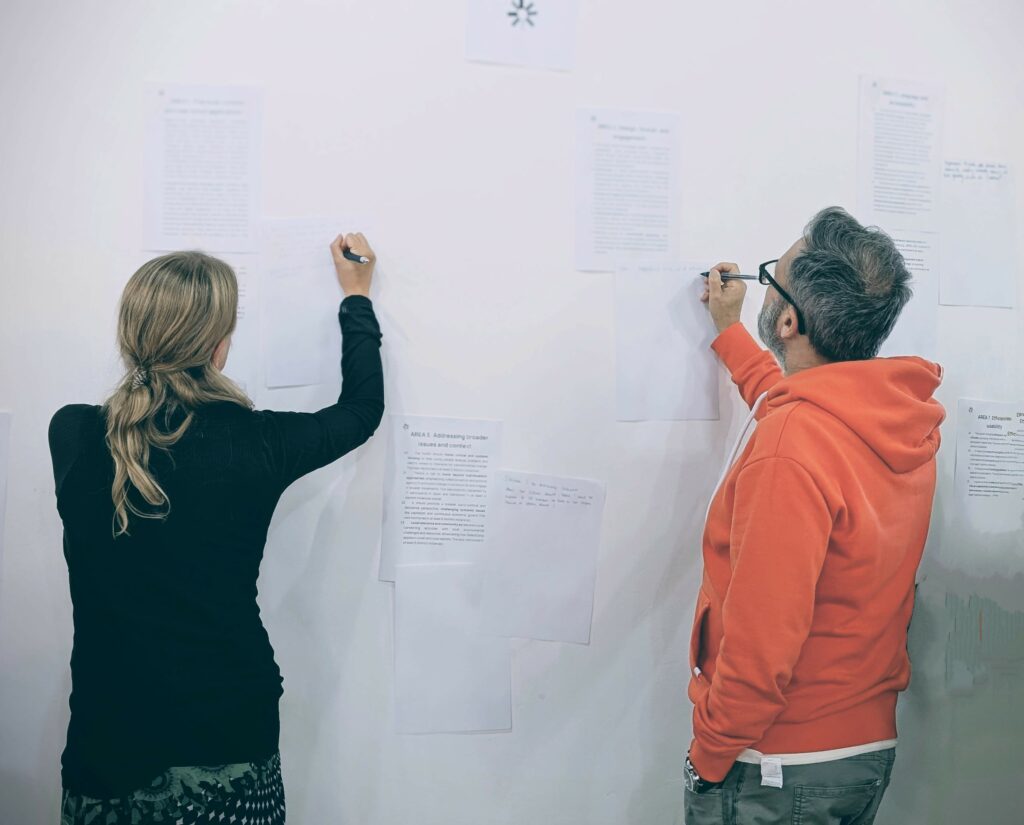
Why This Approach Matters
This meeting represents an important step in sustainability education development. By bringing researchers and educators together for structured collaboration, this project is working to bridge that gap.
The 100+ interviews conducted during the research phase mean the educational materials will be grounded in real needs rather than assumptions. The interactive format of the meeting ensured that knowledge actually transferred from researchers to educators.
What’s Next
The team is now developing pilot modules for the first set of competencies. These will test how the collaborative approach developed in Vis actually works in practice. The work continues as the team transforms research recommendations into usable learning resources!

